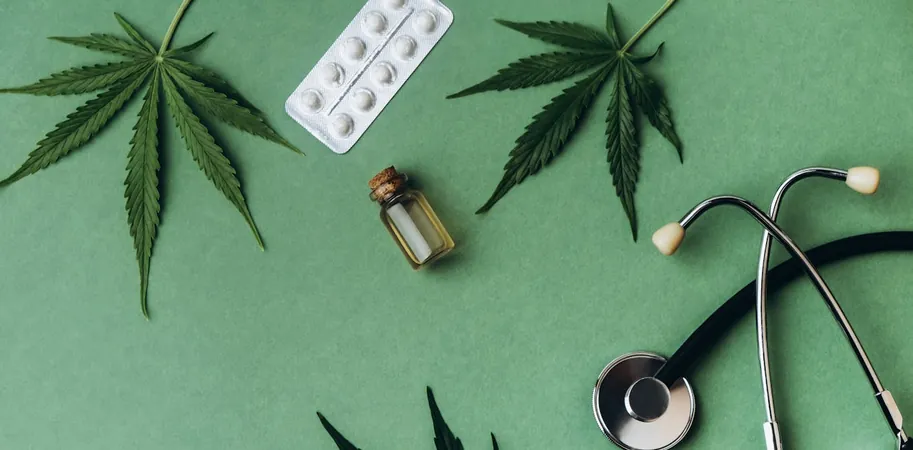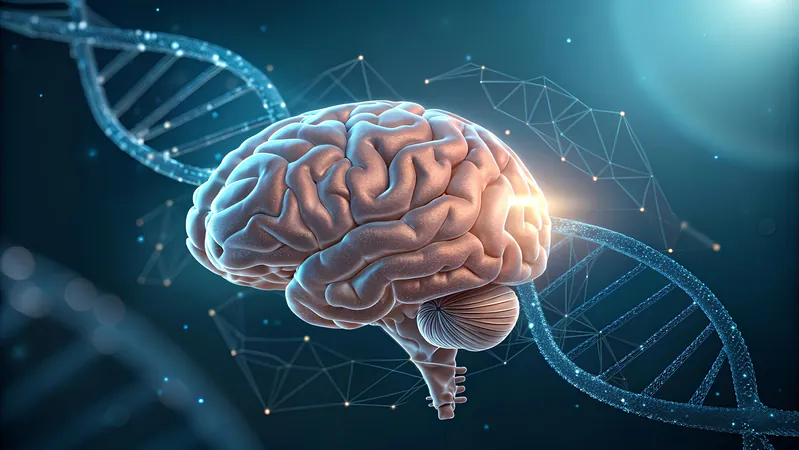
Shocking New Study Shows Access to Legal Marijuana Linked to Drop in Anxiety Medication Prescriptions!
2025-01-10
Author: Daniel
A groundbreaking study published in the journal JAMA Network Open reveals a striking trend: as more Americans gain access to legalized marijuana, the number of patients filling prescriptions for anti-anxiety medications is on the decline. This research, conducted by a team of applied policy researchers, sheds light on how marijuana laws and dispensary openings impact healthcare choices.
Key Findings: Benzodiazepine Use Plummets!
The analysis found a clear correlation between increased access to marijuana and a reduction in the number of benzodiazepine prescriptions filled. The term "fills" refers to actual prescriptions picked up by patients rather than those written by doctors. This shift is particularly noteworthy given that many adults in the U.S. report struggling with mental health disorders—almost 23% of the population in 2021!
For many, the introduction of legal marijuana presents a new pathway for treatment, especially for those dealing with conditions like PTSD. As medical marijuana gains acceptance, patients may find it a more approachable and potentially safer alternative to traditional medications, which often come with a laundry list of side effects.
Why This Matters – The Bigger Picture
This trend could have far-reaching implications not just for individual patients but for healthcare systems, insurance companies, and policymakers. Benzodiazepines have a notorious reputation for risking addiction and overdose, particularly when combined with opioids—a perilous combination responsible for a staggering 14% of opioid-related overdose deaths in 2020. Thus, the prospect of substituting marijuana for such dangerous medications is a promising avenue worth exploring.
Despite these significant findings, there remain unanswered questions. The research did not delve into whether changes in prescription patterns resulted in measurable improvements in mental health outcomes for patients. While there’s some evidence that marijuana can effectively alleviate anxiety, it is still uncertain whether it can match the efficacy of benzodiazepines without leading to other adverse effects.
A Glimpse Into the Future
Interestingly, the study also noted a slight uptick in prescriptions for antidepressants and antipsychotics, raising further questions about the interplay between marijuana access and mental health treatment. While some states experienced an increase, others reported a decrease, indicating that local laws and policies can dramatically influence patient behavior and health outcomes.
For anyone keeping an eye on mental health trends, this study underscores the importance of how changing drug policies can shape treatment choices. As legalization continues to spread across the U.S., the interplay between marijuana access, prescription practices, and patient health will be critical to monitor—and may lead to a transformative shift in how anxiety and other mental health disorders are treated nationwide.
Stay tuned for more updates as research in this dynamic field continues to unfold!




 Brasil (PT)
Brasil (PT)
 Canada (EN)
Canada (EN)
 Chile (ES)
Chile (ES)
 Česko (CS)
Česko (CS)
 대한민국 (KO)
대한민국 (KO)
 España (ES)
España (ES)
 France (FR)
France (FR)
 Hong Kong (EN)
Hong Kong (EN)
 Italia (IT)
Italia (IT)
 日本 (JA)
日本 (JA)
 Magyarország (HU)
Magyarország (HU)
 Norge (NO)
Norge (NO)
 Polska (PL)
Polska (PL)
 Schweiz (DE)
Schweiz (DE)
 Singapore (EN)
Singapore (EN)
 Sverige (SV)
Sverige (SV)
 Suomi (FI)
Suomi (FI)
 Türkiye (TR)
Türkiye (TR)
 الإمارات العربية المتحدة (AR)
الإمارات العربية المتحدة (AR)